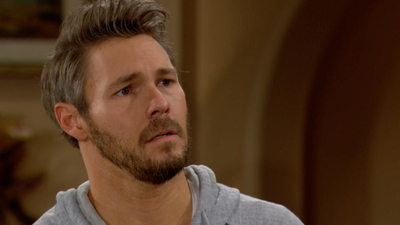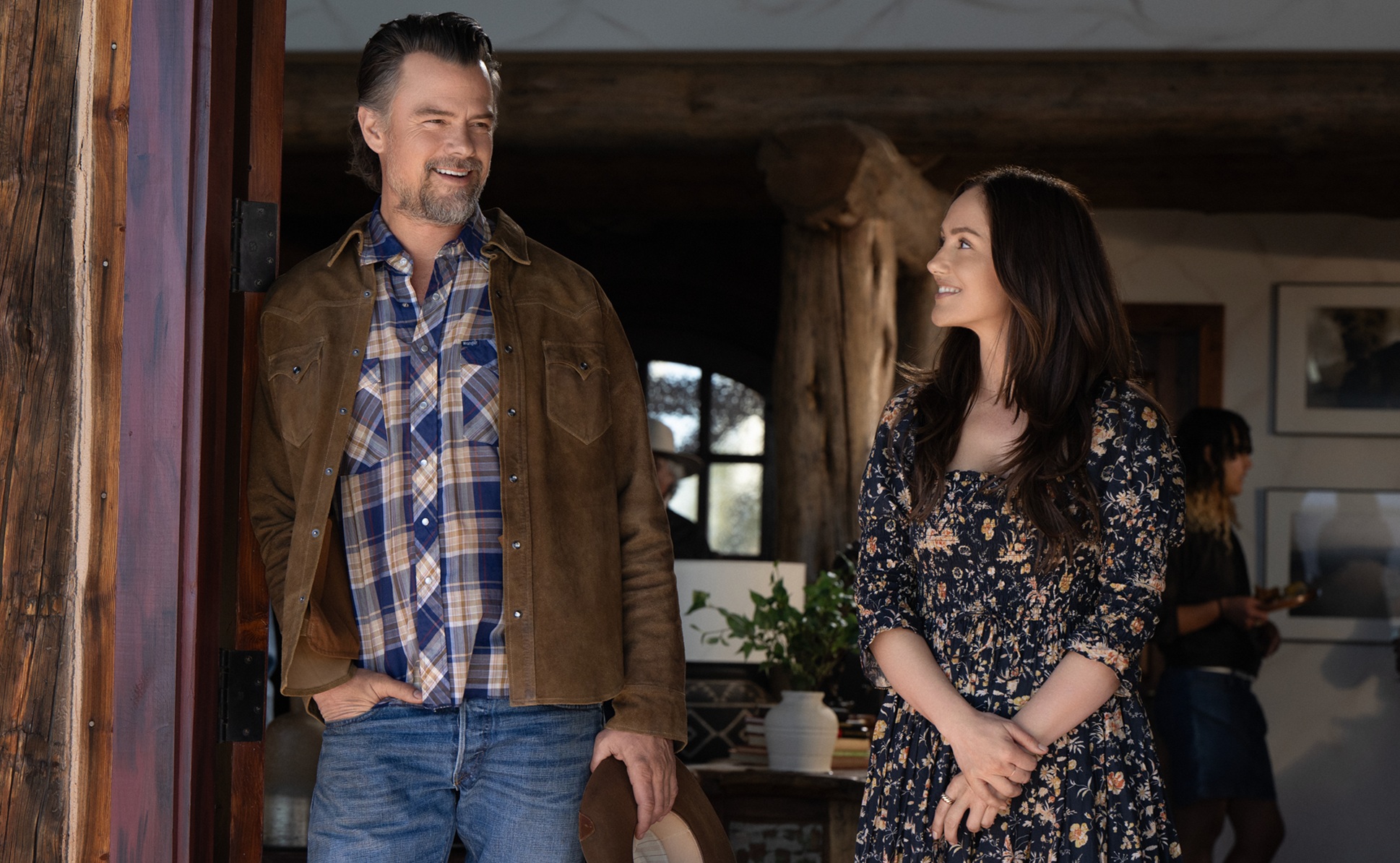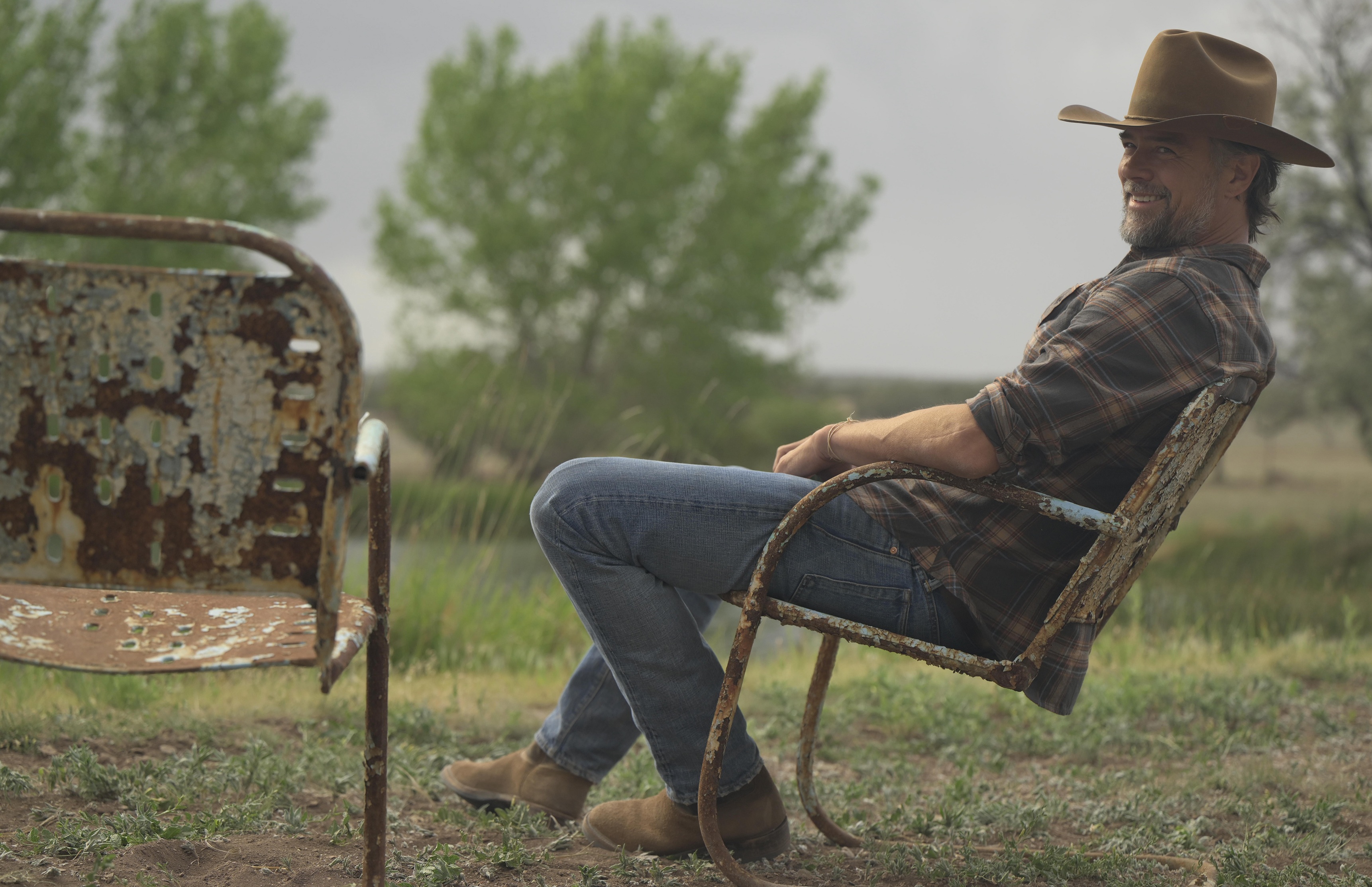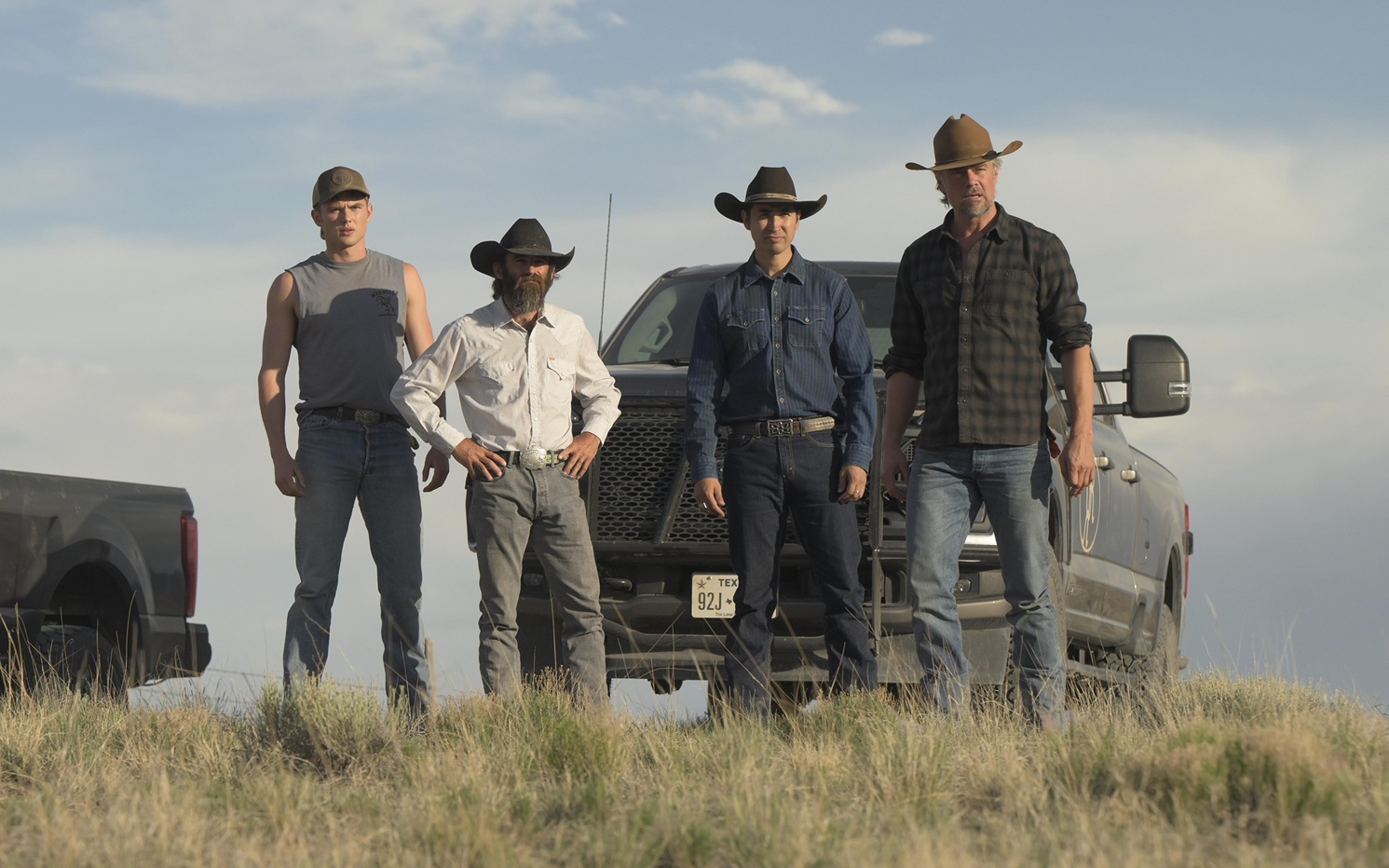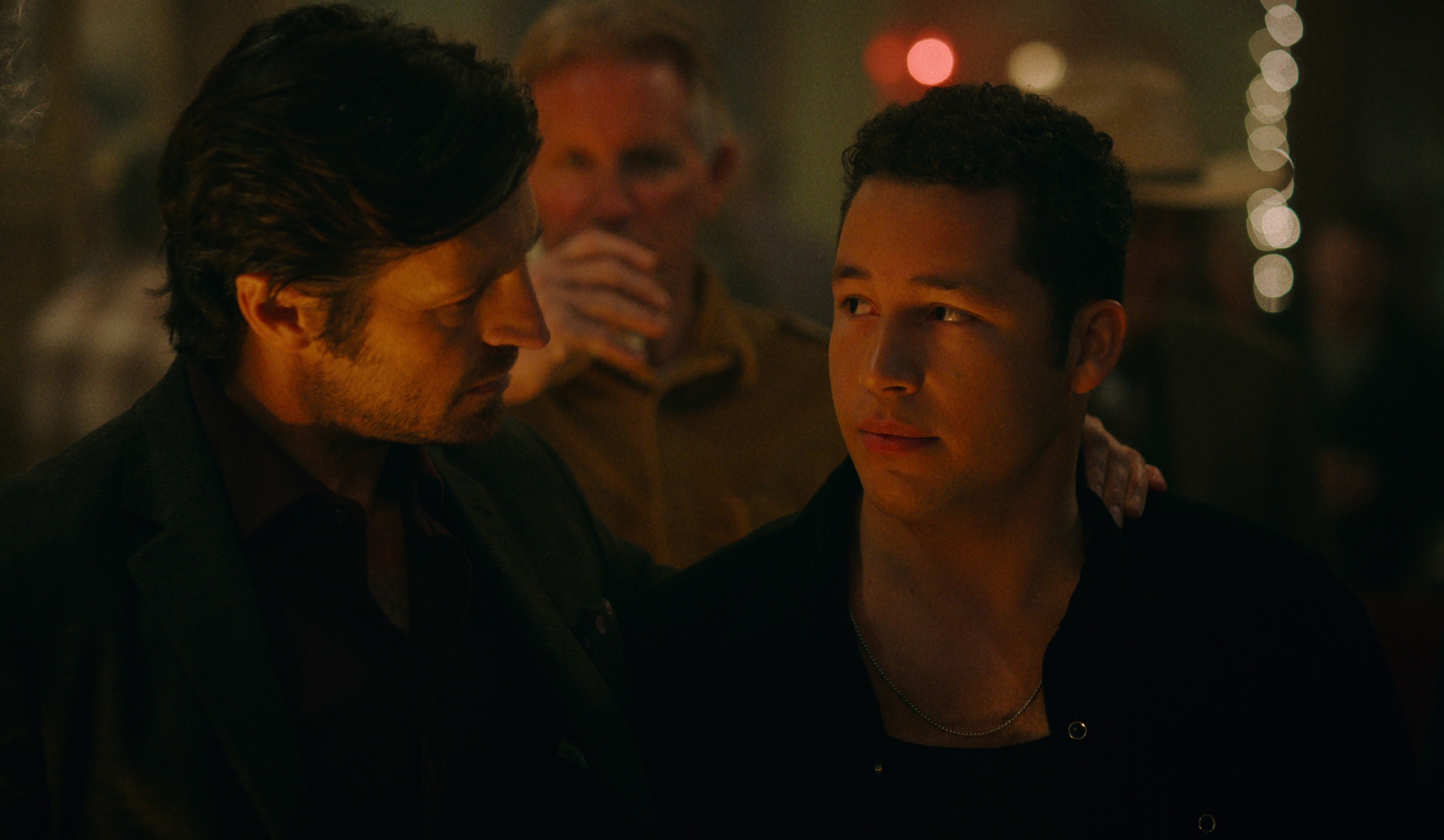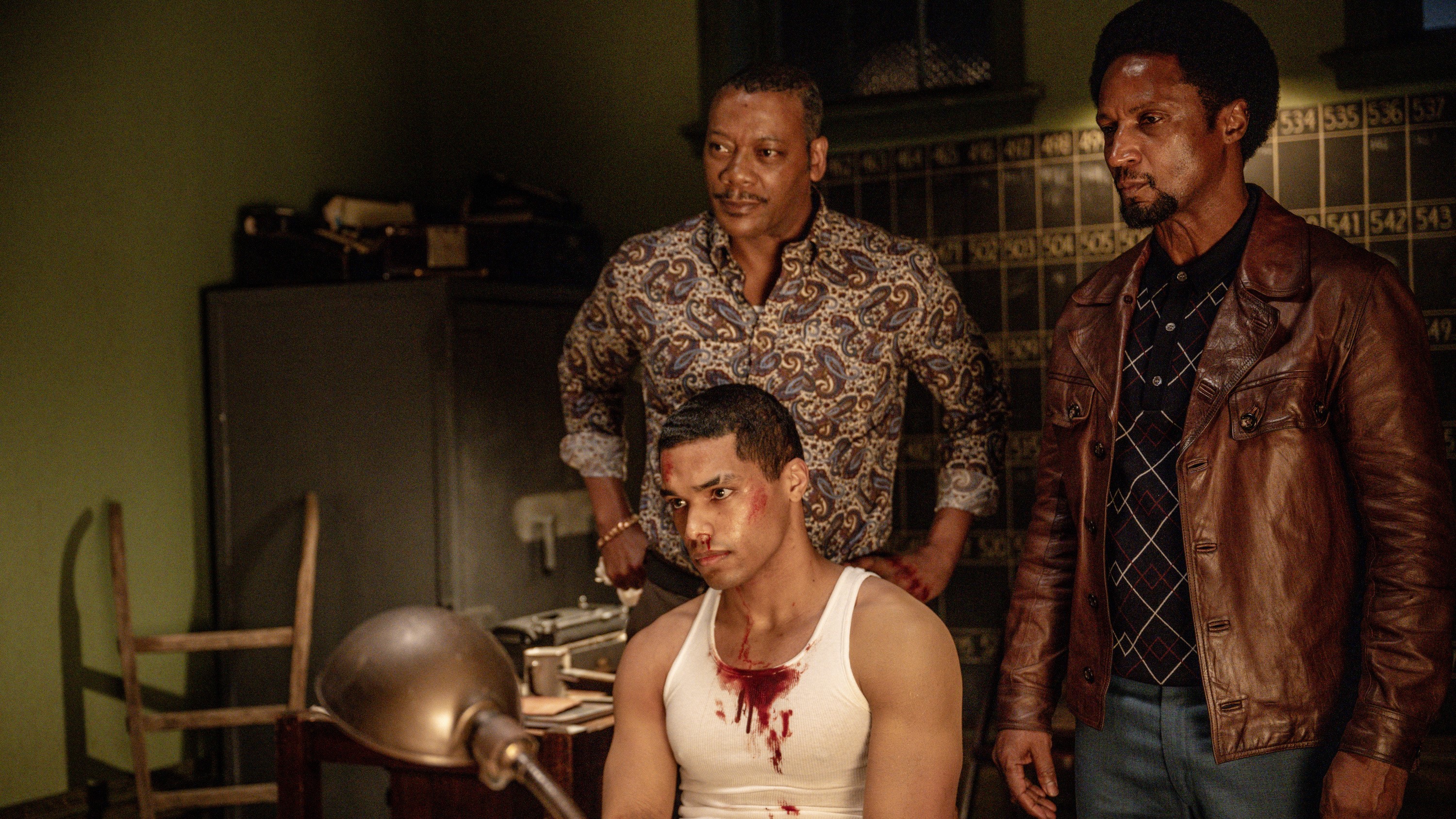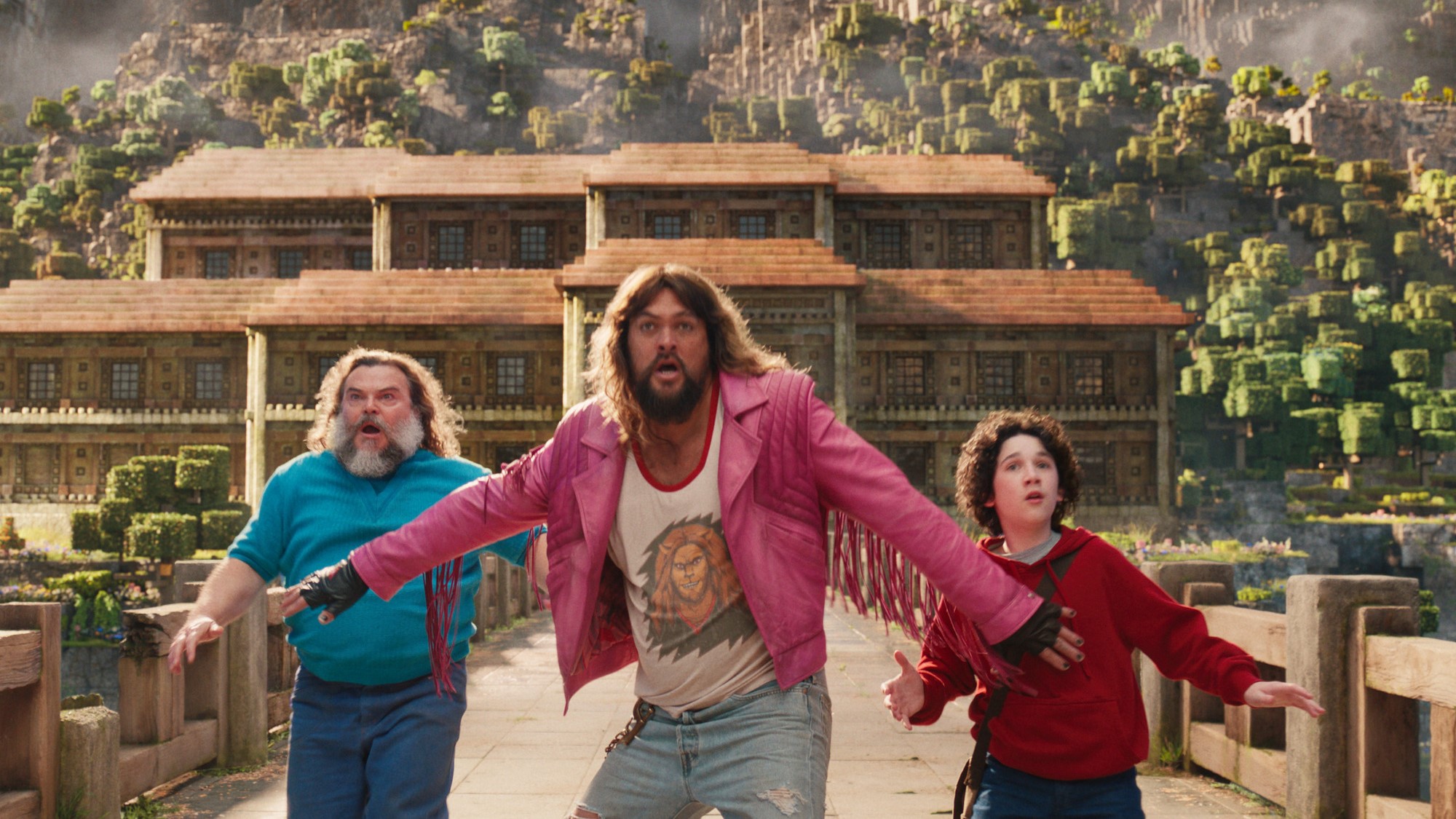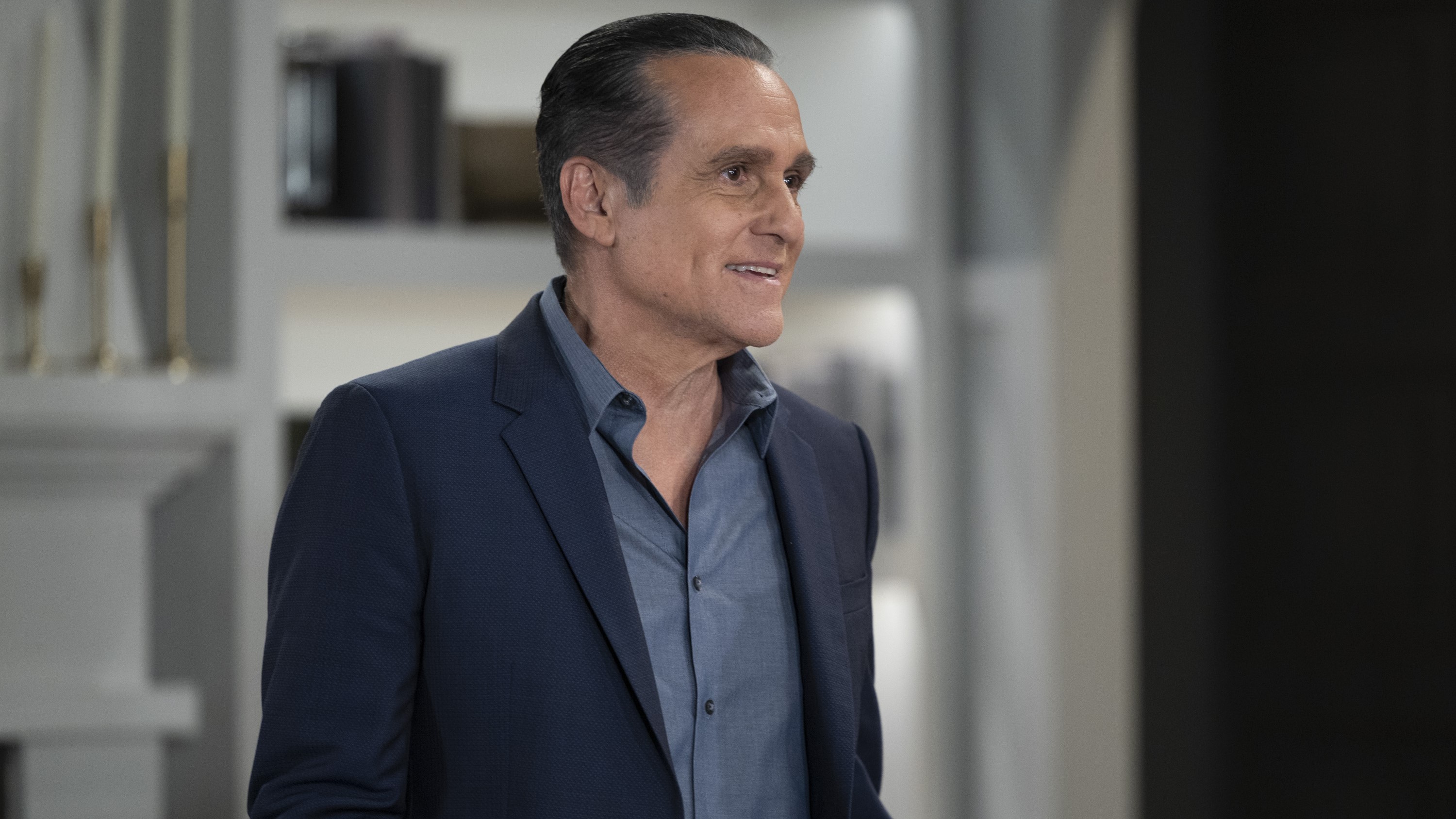September 5 director Tim Fehlbaum opens up on 'crucial' factor that could have derailed movie
Plus, Leonie Bensech and Ben Chaplin discuss how they approached playing their characters.
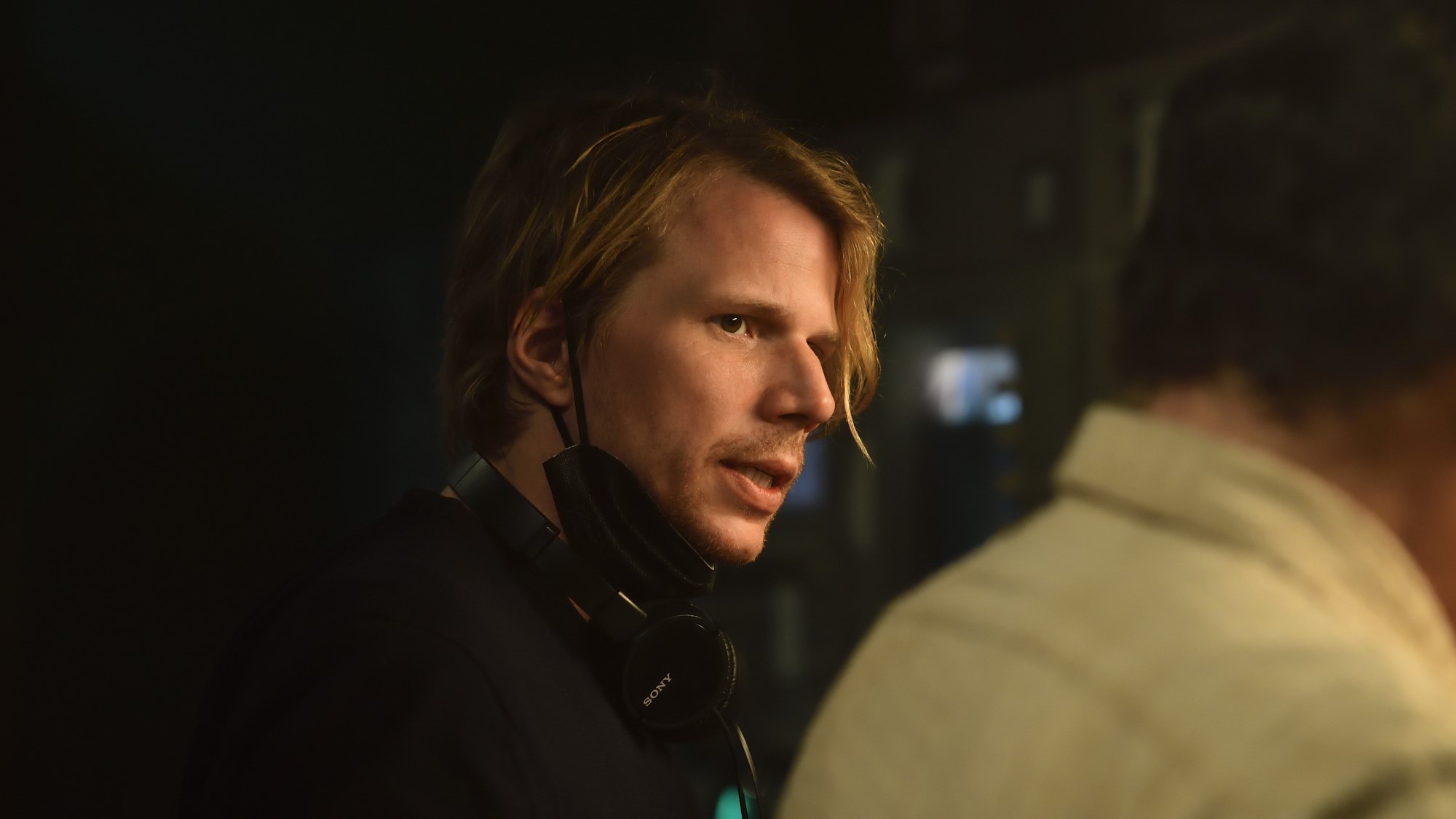
“If we don’t get McKay we don't have to do the project at all.” That was the stance of director Tim Fehlbaum in a heated moment during pre-production on his Golden Globe-nominated movie September 5. But Fehlbaum wasn't talking about getting some big name actor to help make the movie, he was instead referring to archival footage of legendary sports journalist Jim McKay.
September 5 recreates the events of the 1972 Munich Olympic hostage crisis, where a group of Palestinian terrorists held Israeli athletes in their hotel room in the Olympic village. Specifically, it follows the work of the ABC Sports TV production crew that went from covering the day's sporting events to sharing a breaking news event live across the world. Jim McKay was a part of that coverage as an anchor for ABC Sports, helping to deliver the news to audiences, including the story’s tragic ending.
I spoke with Fehlbaum, along with cast members Leonie Benesch and Ben Chaplin, about the movie recently, including the use of archival footage. Fehlbaum says while they did have to recreate some footage from the Olympic village, “what you could never recreate is Jim McKay’s performance.”
“This is just a very unique mix, also very specific to the time,” Fehlbaum said. "How he moderates into the camera, this mix of staying professional but sometimes you could feel the emotions coming through. So it was crucial for us.”
While he admits his statement of getting the McKay footage or calling off the movie was a bit dramatic, he was thrilled he had a group of producers that felt the same way. The results on screen speak from themselves, as I note in my September 5 review.
The use of archival footage was just part of the great research and detail Fehlbaum put into the movie, which Benesch and Chaplin noted when talking about what drew them to the project. But what was their own research like as most of the cast were playing real-life individuals involved in the event?
Bensech was quick to note her character, Marianne Gebhardt, is an amalgamation of different people. But she felt Marianne “represents that German generation at the time,” as the 1972 Olympics was one of the first major world events to take place in Germany following World War Two.
Get the What to Watch Newsletter
The latest updates, reviews and unmissable series to watch and more!
Chaplin’s character, Marvin Bader, was a real member of the broadcast team, but as he was not someone that many people would recognize, Chaplin notes there was a little less pressure in creating a recognizable interpretation of Bader, though he still had a “duty of care” to Bader. While Bader was not alive for Chaplin to meet, he still says he felt a presence that he found nice during his performance.
Below you’ll find a full transcript of my conversation with the September 5 team, edited minimally for clarity.
WTW: What did you know about the Munich hostage situation before taking this project on and what intrigued you about telling this story now?
Tim Fehlbaum: I knew a lot about it before because I studied in Munich, and in Munich this story, even after all these years, feels very present. There was a documentary that I saw in the late 90s called One Day in September, which had a huge impact on me and made me very interested in the topic. What I didn’t know before we started the research is what an important role the media played on that day. It was a research conversation we had with Geoffrey Mason, the character played by John Magaro, and listening to his stories on what they experienced on this day, that’s the first time that sparked the idea in us, that this could be really interesting. Especially from today’s point of view, relevant to tell the story from that angle.
Leonie Benesch: Oh, it was a fantastic script. And if you read a really good script with a very good part you definitely say yes, you’d be very silly not to. After reading the script, I actually went to watch Tim’s other films and they are so different that I was just really intrigued to meet and work with someone who first does this and then has written a script like this.
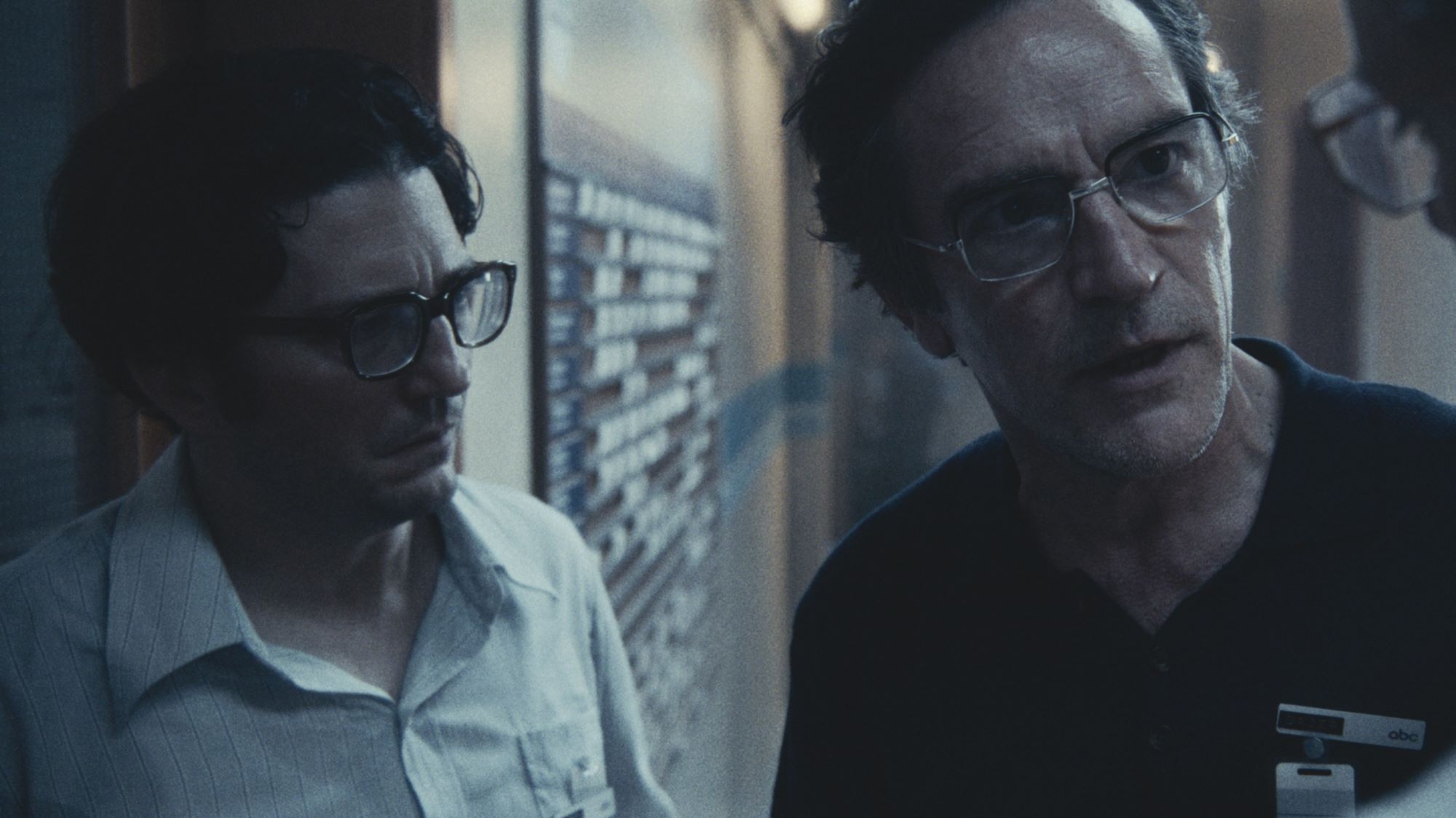
Ben Chaplin: Similar to Leonie. I got sent the script and found it riveting and fascinating and it was from a perspective that I wasn’t aware of at all. Being aware of some of the footage and of the tragedy, but I wasn’t aware that the images that I’d seen had been shot from a sports network. To see this sort of behind the scenes, real people and what that day was like for them seemed to me to be a really fascinating and clever and original take on that perspective on the tragedy, and by extension of live television and journalism.
WTW: Tim, speaking to the archival footage used throughout the movie, I found that really fascinating and really helped it. Was that always something you envisioned being part of this project or was that something you discovered in the process?
TF: We very much hoped, I have to say, that we’d get it from the beginning. But to us it was really clear, we can recreate — and we did have to recreate some of the footage from the Olympic village — what they see on the screen, but what you could never recreate is Jim McKay’s performance. This is just a very unique mix, also very specific to the time. I think how he moderates into the camera, this mix of staying professional but sometimes you could feel the emotions coming through. So it was crucial for us.
At some early heated moments before shooting in the production office… I dramatically said if we don’t get McKay we don’t have to do the project at all. I’m lucky enough to be able to be surrounded by a group of producers that actually felt very much the same and we were very lucky enough to get it.
I want to add… I watched the movie with Sean McManus, Jim McKay’s son, and Sean McManus’ son, Jim McKay’s grandson, in a theater at Paramount in New York. That was a really touching experience, because after the screening Sean turned to his son and said, ‘well, that’s your grandfather.’ … He said he was so proud how Jim is portrayed in the movie. So that was an essential part of it.
WTW: Leonie and Ben, obviously this is a true story, real people that you are portraying. How do you handle playing character that are based on real people, does that change your process at all?
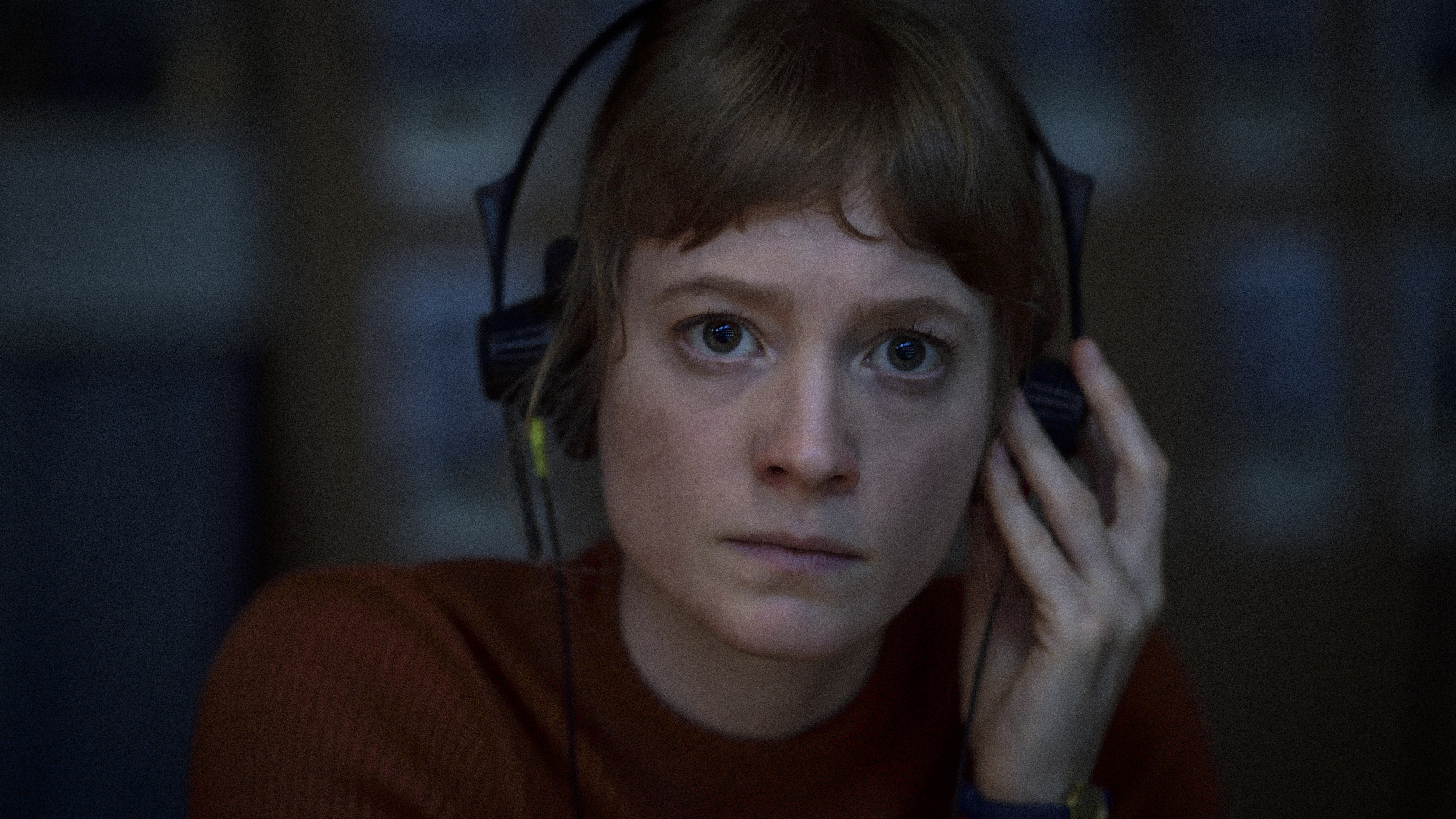
LB: Well actually, Marianne Gebhardt was not a real person, she’s an amalgamation of several people… But you know that’s a complement to the writing, because it means she doesn’t feel shoehorned in and you easily believe that of course there were translators and translators traditionally were female. Hats off more to Tim for writing someone that obviously represents that German generation at the time and I think it’s a really important layer in the film to create that character. And for it not to feel shoehorned in, that’s a great achievement…. For me it was a relief to know that she didn’t exist… I felt responsibility to do a good job, but I was relieved that I didn’t have to talk to someone that I then had to do justice to.
BC: I think the process for preparing for — I think it would vary depending on the actor — but the process is the same for a fictional character or a real one. The number one thing you will end up shooting is the screenplay, so that’s what you have to work with. Sometimes the research can actually — not in this case because it was so well researched and so particular and specific and authentic — but sometimes research can get in the way of a screenplay if it’s not going to influence the screenplay and you end up knowing things that aren’t in the screenplay can actually work the other way.
The process is the same, and also I was playing someone that very few people know what he looked like or sounded like. So you’re not under the same pressure, if you like, to give a recognizable representation of the person. But you do have a duty of care, obviously, to the character and to the person, but I think the screenplay had that duty of care. So a lot of that was done for you. I know Peter Sarsgaard sort of feels the same way, it’s the care you would have for any character.
The thing I would just say that may sound a bit mystical, when I’ve played real people in the past, particularly when they’ve died, you sort of feel their presence a little bit. And that may be just your sense of responsibility. I definitely felt a sort of, I don’t know, that you’re just sort of representing them in some way, and it feels nice.
September 5 releases in limited US movie theaters on December 13 before opening nationwide on January 17. UK release date still being confirmed.

Michael Balderston is What to Watch’s assistant managing editor and lead movie writer, covering movies coming to theaters, writing movie reviews and highlighting new and classic movies on streaming services; he also covers a range of TV shows, including those in the Taylor Sheridan universe, Slow Horses, Only Murders in the Building, Jeopardy!, Saturday Night Live and more, as well as the best ways to watch some major US sporting events.
Based outside of Washington, D.C., Michael's previous experience includes writing for Awards Circuit, TV Technology and The Wrap.
Michael’s favorite movie of all time is Casablanca, while his favorite TV show is Seinfeld. Some 2025 favorites include One of Them Days and Black Bag for movies, and The Pitt on TV. Follow on Letterboxd to keep up with what I'm watching.
